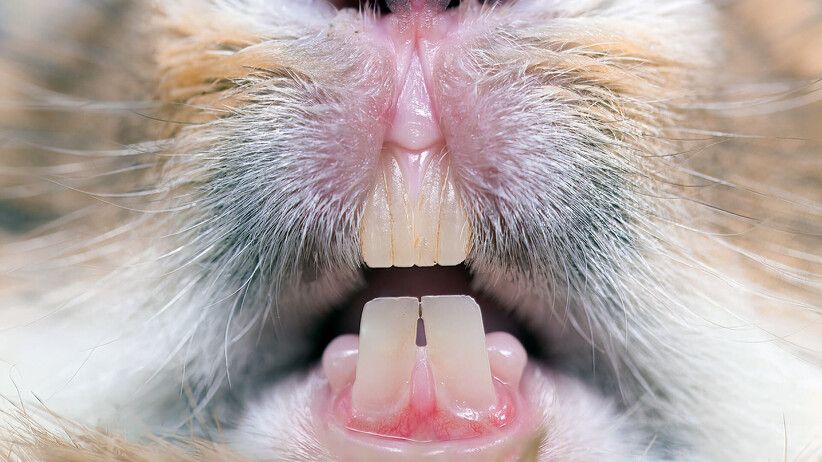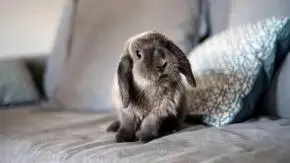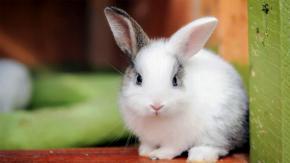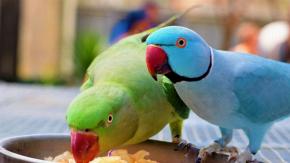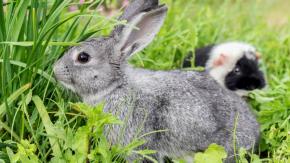Rabbits are one of the most popular pets in Australia due to several reasons.
They have distinct personalities, are inexpensive, and are quite affectionate and playful. However, rabbit owners have to pay attention to certain things, including their dental health. Rabbit teeth grow extremely fast, leading to several problems when unchecked.
Overgrowth of teeth can lead to infections and various dental problems, which can even spread to your rabbit’s delicate skull. That is why it is essential to pay attention to the oral health of your bunny.
This guide mentions some of the ways by which you can ensure that your pet’s teeth stay healthy. So make sure to read until the end!
Why Do Rabbit’s Teeth Require Extra Care?
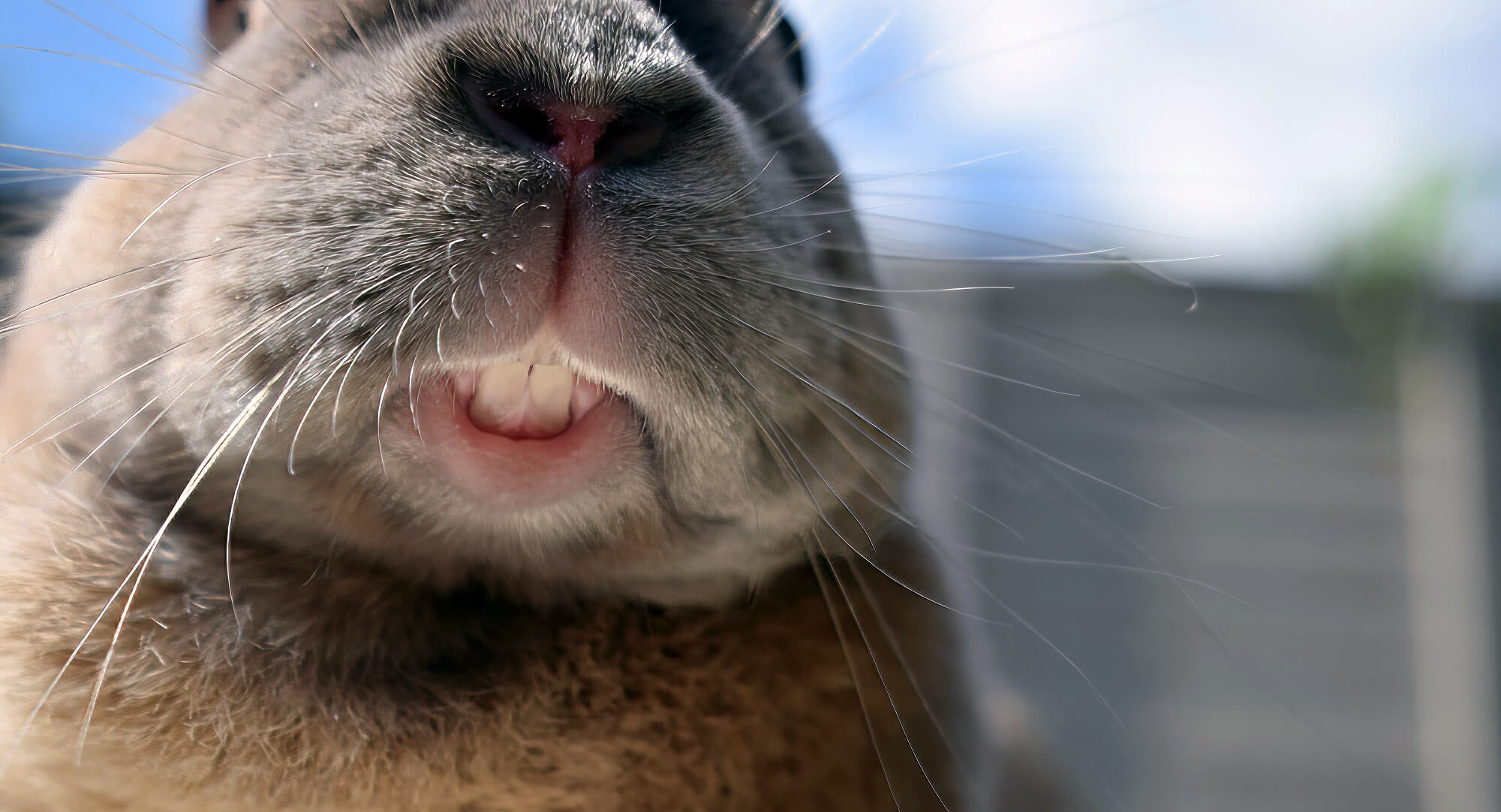
Like human fingernails, rabbits’ teeth grow throughout their lifetime.
A rabbit’s teeth can grow one-tenth of an inch in size in a week. But if their teeth grow too long, they can cause problems, like difficulty in feeding. In the wild, there are various things that rabbits can chew on to prevent their teeth from growing too long, such as vegetation, grass and hay.
However, pet rabbits do not have access to the same materials, and what they consume does not necessarily wear down the crown of their teeth. Additionally, the food they are given usually contains a lot of carbohydrates, but it is not a high-fibre diet that can prevent tooth problems.
Then, there is the fact that pet rabbits spend a huge amount of time indoors, away from sunlight, which provides the Vitamin D required for strong bones and teeth.
The Length Of Rabbits Teeth
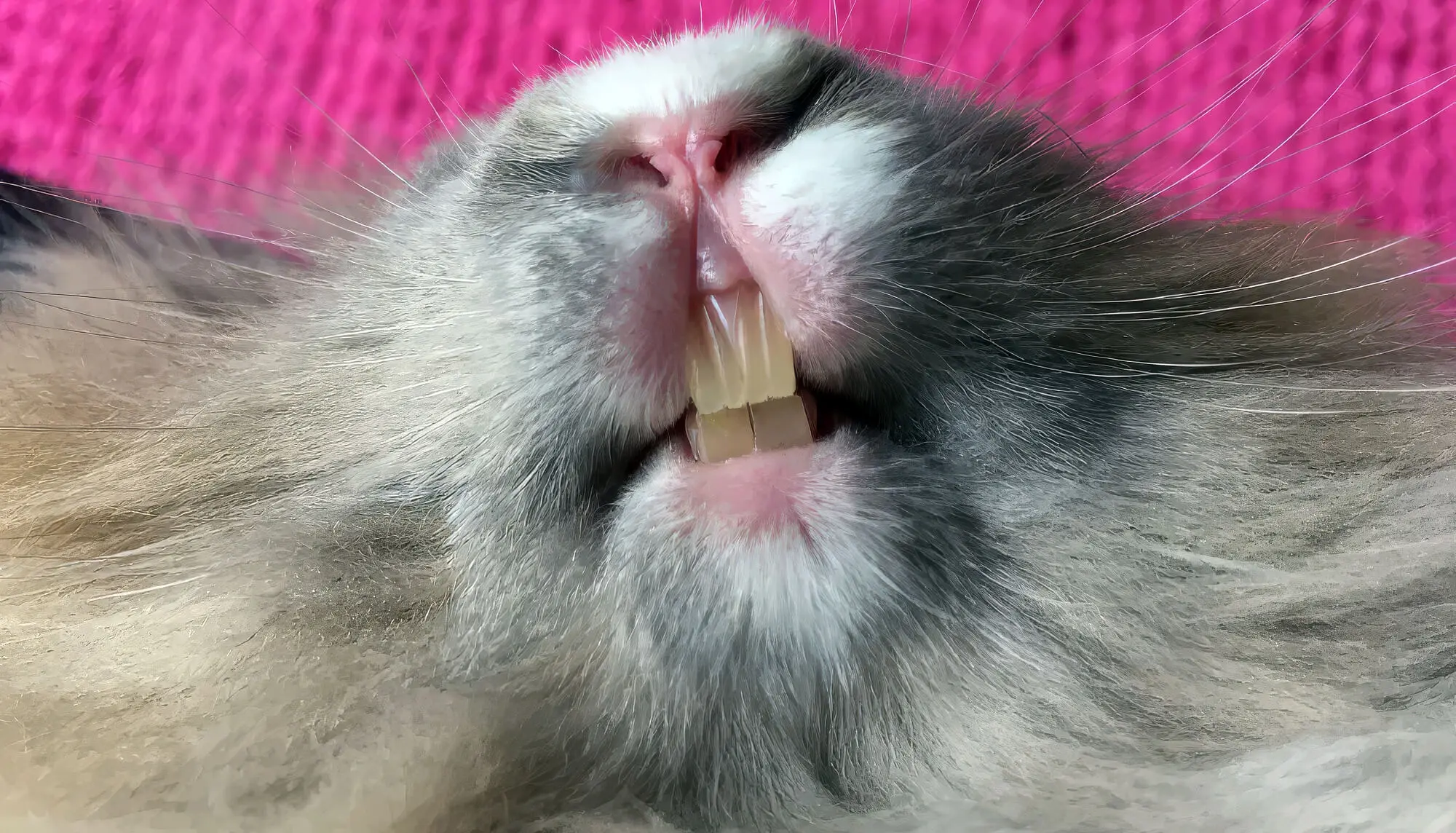
Knowing the length of your rabbit’s teeth can make preventing problems like overgrown front teeth easier. Healthy rabbits’ front teeth or incisors are straight, white and long, with the upper ones slightly overlapping the ones at the bottom. A rabbit with healthy teeth should be able to close its mouth comfortably.
In addition to incisors, rabbits have peg teeth, which should not be visible in most circumstances. The reason is that these teeth generally grow behind the upper incisors within the rabbit’s mouth. If you can see your bunny’s peg teeth, it may indicate a problem with the incisors.
Finally, there are the molars or cheek teeth, which are blunt teeth like the incisors. The chances of overgrown molars are very slight if your rabbit has good dental hygiene. But if these turn into abnormally long teeth, it may not be able to close its mouth properly and may even suffer from gum disease.
Also, a major difference between rabbits and other pets, like cats and dogs, is that rabbits lack canine teeth.
Dental Disease In Rabbits
When your rabbit does not get the proper diet to wear down the crown of its cheek teeth, it can become overgrown. In such cases, the upper teeth become misaligned and do not meet the bottom ones, and this condition is known as malocclusion. The back teeth will also overgrow and become sharp-edged, making it difficult for your bunny to chew food properly.
This is one of the most common diseases pet rabbits suffer from, and it can occur due to various causes. Generally, an overgrowth of the cheek teeth occurs due to improper diet, but such dental issues can also occur due to injury to the mouth or issues at birth.
If dental problems are not detected in time, they can make it extremely difficult for your rabbit to eat properly, thus affecting its health. To determine whether your pet has dental disease, it is recommended to take it to the vet immediately. Additionally, sure signs can indicate the presence of a problem.
Signs Of Dental Disease
Here are some signs that can indicate that your bunny is suffering from dental disease.
- Discharge from the mouth or drooling
- Discharge from nose
- Eye problems as teeth are forced near tear ducts
- Wet paws or chin
- Swelling of the jaw
- Weight loss
- Lack of appetite
- Accumulation of faeces under the tail
Keeping Your Rabbit’s Teeth Healthy
Unlike cats and other pets, rabbit teeth do not require regular brushing and should not be trimmed by yourself. There are other ways by which you can prevent overgrown teeth, and here are some of the best ones.
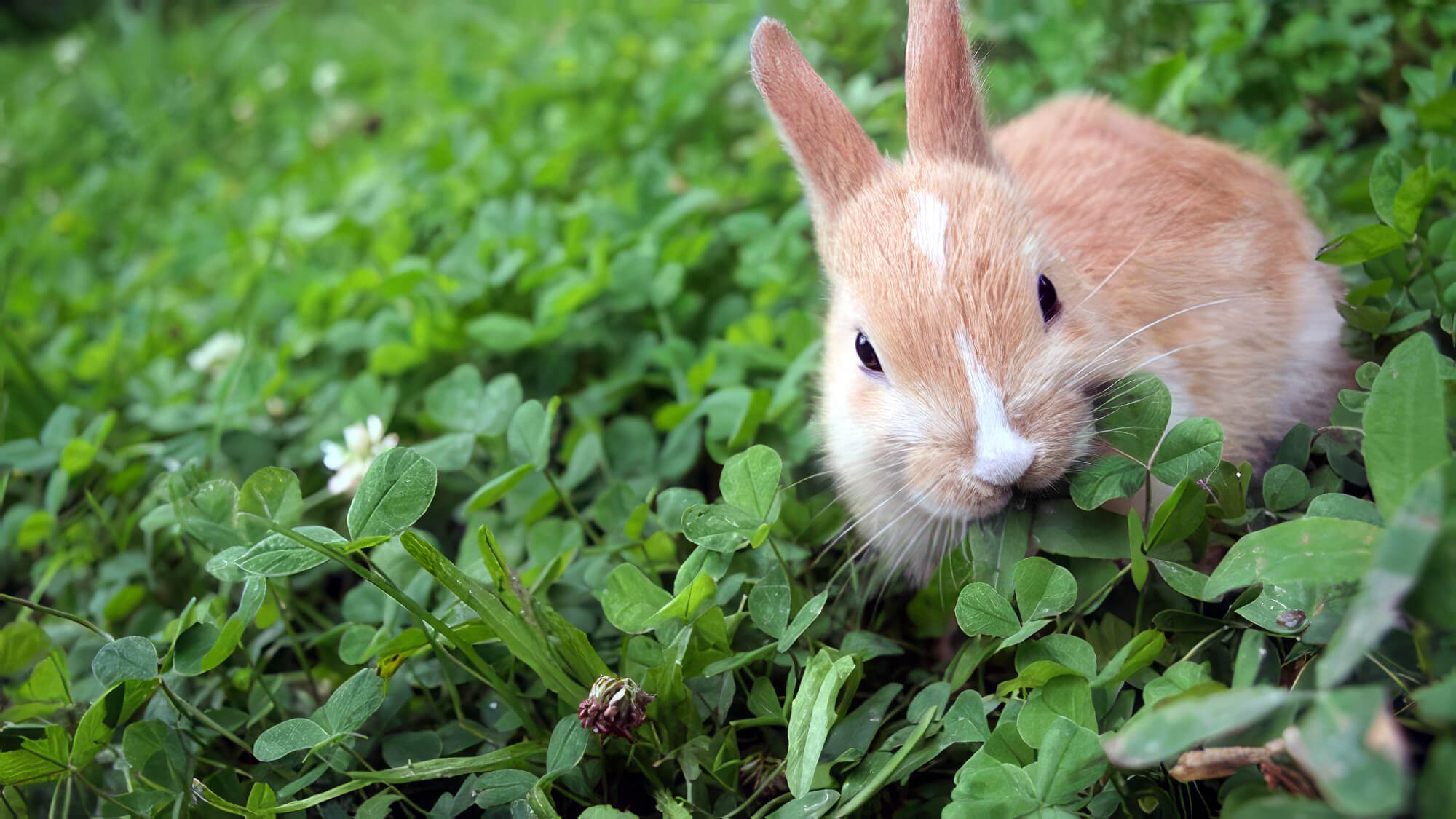
1. Ensuring a Proper Diet
The best and easiest way to ensure healthy rabbit teeth is to provide your pet with a proper diet that contains a lot of fibre. Fibrous food can wear down the crown of your rabbit’s teeth, preventing problems like a dental disease. Different hay varieties, such as orchard and timothy hay, can be useful.
One excellent option is Tim Rose Marigold Hay, which is rich in fibre and contains marigold and rose flowers, which rabbits are exceptionally fond of. You can also go with the Botanical Hay, which is recommended by veterinarians and contains all-natural ingredients. But do not feed alfalfa hay to adult rabbits since it has little fibre content and is only suitable for growing pet rabbits.
In addition to hay, rabbits can be fed green leafy vegetables, such as lettuce, carrot tops, kale and others. Make sure to select veggies that are grown organically and do not contain any pesticides. And when giving treats, opt for healthy options like melons, strawberries and bananas instead of chocolate and candies.
Treats should also be offered in small amounts, and that too, very sparingly. Finally, avoid feeding your rabbit too many pellets since they are softer and ineffective in grinding down rabbit teeth.
2. Providing Your Rabbit With Chew Toys
Wild rabbits chew a lot, and this habit is what prevents them from having overgrown teeth. In comparison, a pet rabbit’s chewing options are quite limited as they cannot access tree bark, plants and other things available in the wild. That is where chew toys can come in handy.
Like cats, rabbits can be given different chew toys to help keep their teeth healthy. Various types of toys can be used for the purpose, such as:
1. Wooden Toys
Wooden toys may comprise blocks or hanging toys your rabbit can chew on and play with. However, when selecting such toys, check the type of wood used for constructing them. Certain types of wood, such as cedar, can be toxic for rabbits. Similarly, ensure that the paint used on the toys is made using vegetable dyes and is completely safe for pets.
You can check out this Rosewood Maze-A-Log, which is a good choice for small pets like rabbits and is entirely safe. It can provide a hard, solid surface for your pet to chew on, preventing overgrown teeth and dental health problems.
For hanging toys, the Rosewood Sea Grass Fun Ball is another option worth considering and will keep your bunny occupied for a long time.
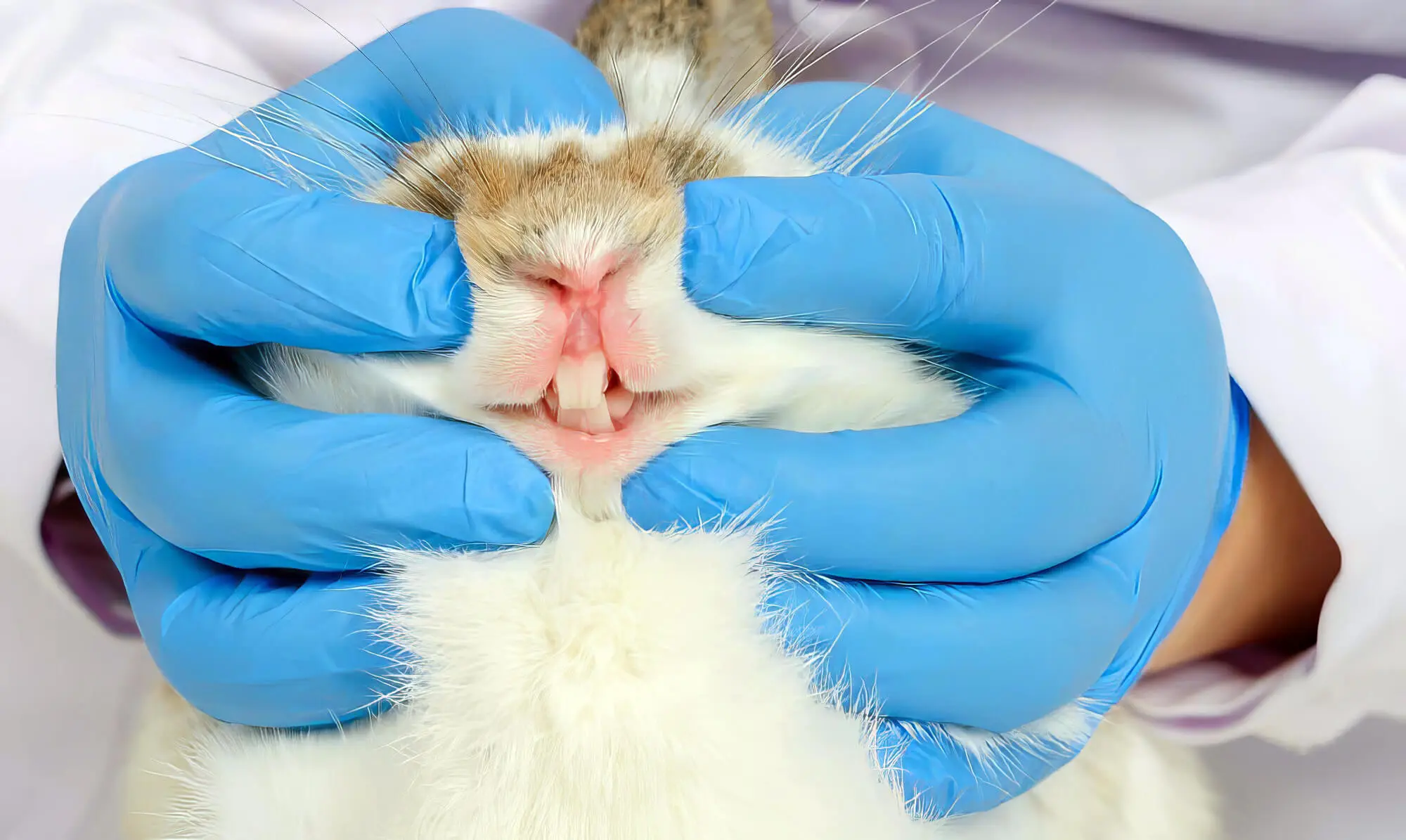
2. Cardboard
If you’re looking for a cheaper alternative to wooden chew toys, cardboard is the ideal choice. Toilet paper rolls and boxes made of cardboard can also keep your rabbit’s teeth healthy by providing a rough surface that can grind down its teeth. While they may not be as effective as wooden toys for rabbits’ teeth, they can still prevent overgrowth of the cheek teeth.
But before you give your bunny any cardboard box or roll, check that it does not have any staples or tape, as these can be ingested, leading to problems.
3. Naturally Sourced Items
Naturally sourced items are good for your rabbit’s teeth and can help improve its overall health and well-being. For instance, applewood sticks and pinecones are things that rabbits love, as these provide a change of flavour from their regular diet.
These items can be found outside; you must wash them thoroughly before giving them to your pet. If they are not available easily, some pet stores offer such materials for small pets like guinea pigs and rabbits.
3. Regular Checkups
Besides the methods mentioned above, you should book an appointment with a rabbit-savvy veterinarian at least once a year. Timely checkups help diagnose problems before they become serious, making it easier to deal with them quickly.
An experienced vet can check for signs indicating dental issues, like misaligned teeth, tooth decay or overgrown rabbit incisors.
Getting Your Rabbit’s Teeth Trimmed
Trimming is an alternative solution where the molars or incisor teeth have already increased in size, but there are no signs of disease yet. A vet generally trims the front teeth while your pet rabbit is conscious, but it must be put under anaesthesia to trim molars.
Trimming your rabbit’s teeth on your own is not recommended, as the procedure needs a high degree of skill and expertise. Additionally, it requires specialised equipment and can be stressful for the rabbit. That is why the best solution for rabbit owners is to visit a vet who can perform teeth-trimming operations properly.
Taking Care of Your Rabbit’s Teeth
Keeping a rabbit is easier than larger pets like dogs since they require less maintenance. That said, minor issues, like dental problems, can achieve significant proportions for pets like domestic rabbits if not dealt with properly in time.
Overgrowth of teeth is the most common factor that affects rabbits’ dental health, and when unchecked, it can lead to other issues like metabolic bone disease. Hopefully, with the methods mentioned here, you can help your rabbit’s teeth grow normally without problems.
In any case, an annual visit to the vet is strongly recommended and will make sure you have a healthy bunny.

